Difference between revisions of "Gold leather"
| Line 97: | Line 97: | ||
<p> </p> | <p> </p> | ||
| − | |||
<p align=center> | <p align=center> | ||
<flashow>//www.youtube.com/v/EuL7HcrIPfQ&fs=1&color1=0x660000&color2=0x550000&border=1|width=500|height=281,25</flashow> | <flashow>//www.youtube.com/v/EuL7HcrIPfQ&fs=1&color1=0x660000&color2=0x550000&border=1|width=500|height=281,25</flashow> | ||
Revision as of 14:39, 11 March 2017
Contents
Gold leather
Use of leather items with a special finish gives them a golden glow. It was heavily used in the form of leather wallpaper for royal and upper-class residences in Europe during 16th - 18th century.
Although one could assume that the golden surface of the leather comes from a gold leaf coating, it is actually silver leaf. Nevertheless, even if not real gold, the manufacturing process is still very expensive and complex, and requires practice and patience, as well as the background knowledge to obtain the perfect gold shimmer. A special paint based on various resins was used for this purpose and its composition was a closely guarded secret during the Renaissance and Baroque periods.
Gold leather was additionally decorated by carving, paintings and embossings.
Leather wallpaper with gold leather (leaf silver with paintwork) and embossing in the castle of Jever in Germany.
Today the tone or shade of gold leather is adjusted by dyeing or using foils.
Carp leather as gold leather topped with metallic film.
Leather handbag made of gold leather.
Two ladies' shoes made of gold leather from around 1895 (German Leather Museum in Offenbach).
Hand gilding - Gold print - Press gilding - Engraving calligraphy
In the decoration of book covers with gold leather, several techniques can be distinguished:
- Hand gilding: Hand gilding technique comes from the Islamic culture and existed way back in the 11th century, using tools to emboss the gold leaf onto the leather. It is a highly skilled technique and It is necessary to work very carefully to achieve clean transitions.
- Gold print: Motifs were pre-punched, then the area had to be primed. The rest of the areas where the gold was not going to be applied were oiled so that the gold leaf wouldn’t stay. The gold leaf was applied with cotton, pressed with a heated tool and the excess was rubbed off.
- Press gilding: Decorative motifs were applied using brass plates or stamps. Today, long sheets of gold foil are used by machines to gold plate the leather.
- Engraving calligraphy: The transfer of gold foil on leather with heat by hand.
Books with gold imprint.
In the past, table tops made of leather were often decorated with gold borders.
Tool for the application of gold stamping.
Engraving gold calligraphy with heat by hand.
Film about the peculiarities of metallic effects on leather
Additional information








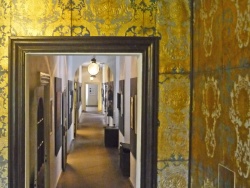
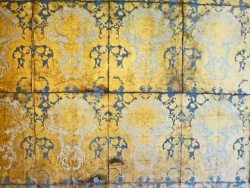
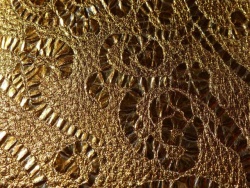
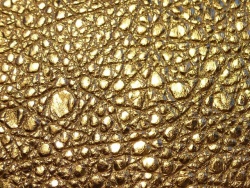
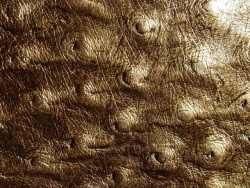
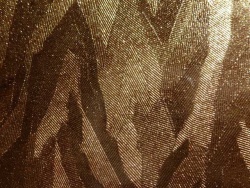
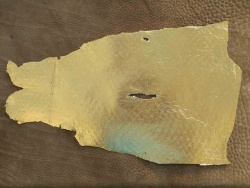
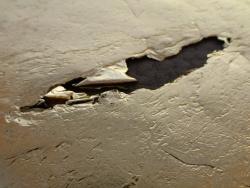
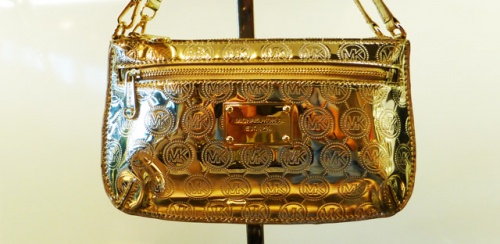
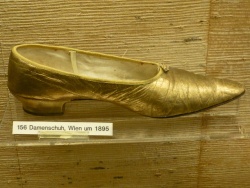
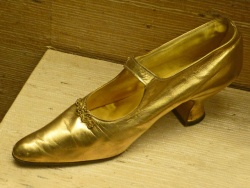

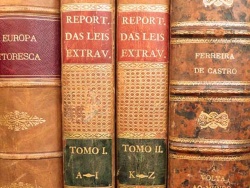
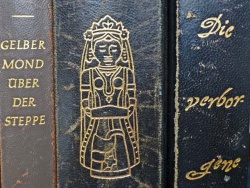
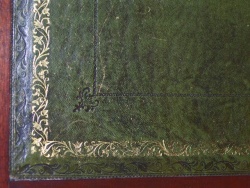
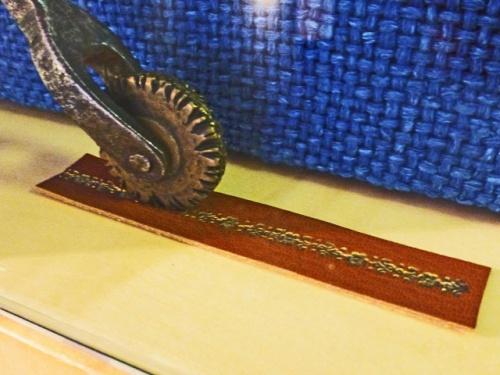

 a kotori web solution
a kotori web solution